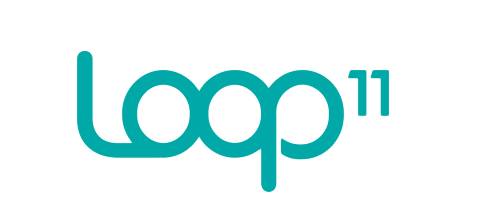
Developing products and services takes up time, cost, and effort. To make sure everything is worth the while, you may refer to product research as your go-to solution.
Conducting research for your products lets you know exactly how customers like them, then strategize this information to create informed and better product decisions.
What Are the Types of Product Research?
Product research is a crucial process you have to go through. Without it, you're completely blind to what's about to greet your products and services upon rollout. Plus, when you conduct research for products, you can identify flaws and other deficiencies and fix them before it goes into customers' hands.
But to achieve this, there are different types of product research depending on what you are trying to test. For example, we have concept tests to research products based on consumer preferences before conceptualizing one. This is majorly done in two cases: one is when you're about to release your first product; second is if you're releasing after your first product.
You can also conduct price tests for your products. In that way, you'd know what price range attracts consumers the most. But if you're a software developer and would like to release a new product, functionality testing is the type of product research you need. As the term implies, it means testing if each feature works in conjunction with its initial function.
The most used type of product research is usability testing. Unlike the latter, this one conducts research for products to test if customers can use them. This type of testing lets you know what part of your product or services are the easiest to access and the most difficult as well.
What Is an Example of Product Research?
You'd often see advertisements on the web asking if you'd try a product if it functions like this or that. You might even encounter surveys asking you what type of products would often appear on the internet and which aspect would instantly make you buy.
But if you haven't experienced this yet because you rarely surf the internet, there are also local examples. Remember when a saleslady asked you to try their perfume for free? What about when you were asked to get one glass of refreshments because it was a 'free taste?' Those are examples of product research, but not conducted on the internet.
All in all, there are different types of product research based on what you're looking to find out, and you can read more below to see if our top 5 best user research software works with you.
#1 Loop11
Loop11 is an online, remote usability testing tool that enables you to create online surveys. These surveys ask users to complete tasks that you chose on any of your selected websites. This product research tool gives you control over how the survey is designed and how long it'll last.

Loop11's usability testing tool allows you to conduct both moderated and unmoderated usability tests on live websites, prototypes, as well as competitor websites. You can even start testing early on in the development process to ensure that your designs will succeed like how you initially planned.
Now, since Loop11 tests can be unmoderated, all you need to do is create them, publish them online, or share a link, and tell participants that they can take the tests at their own pace. End-users can simply complete the tests from home.
However, once you publish the test, you cannot edit it. The only way to correct it is by deleting it altogether, so make sure you get it right the first time.
Main Features and Benefits
Has a user-friendly interface
Has customizable features
Allows unlimited number of participants
Is accessible on any device
Doesn't require technical expertise
Generates quick report and can be exported
#2 Userlytics
One of the most popular product and market research platforms is Userlytics. It offers a user testing tool to research products online, websites, software prototypes, applications, and other digital assets.

To give you a chance to strategize the outcome of the user tests, Userlytics lets you collect qualitative and quantitative data and makes it easy to create advanced metrics and set up visual reports.
In Userlytics, you can do so much more than conduct product research because you can also access various user experience test types that could be moderated or unmoderated studies, including usability tests, card sorts, and even tree tests.
The good thing about Userlytics' usability testing is that it lets your digital assets become more engaging than ever. After all, you have the power to customize your tests where you can narrow down your targeted participants, set up your tests, and distribute them across different platforms in just a few minutes without a hitch.
Userlytics lets you test with real people worldwide and is the best way to find usability issues and improve user experience (UX) by identifying problems by analyzing screen recording, voice, and video recording.
Main Features and Benefits
Its tests can be conducted in different ways
Is accessible in different devices
Allows unlimited number of users and participants
Provides faster turnaround of results
Has a QA phase before the turnaround
Is applicable to any digital asset
#3 UserZoom
UserZoom is another product research tool that provides remote usability testing tools. Using it, you can recruit participants, record analytics, and visualize data through heat maps and other types of testing features to analyze tests easier.

Besides usability testing, this product research also features surveys, card sorting, and website intercepts, in which you can establish criteria to gauge UX performance across products.
By doing so, you gain information about customer behavior that can be used to enhance digital experiences across brands.
With UserZoom, you can collect either quantitative or qualitative feedback, but both will generate a report to let you get the gist of your tests. At the same time, you can research products by setting up A/B tests with mockups and obtain user insight before you can fully develop your products.
In addition, you can also use this product research to assess strengths, weaknesses, and areas for improvement by combining behavioral and attitude data, as well as communicating with customers in real-time and getting feedback from them.
Plus, it has a unique capability for non-coders to build enhanced prototypes to evaluate design ideas and use extensive measurement tools when analyzing user feedback.
Main Features and Benefits
Offers different types of product research
Has a variety of measures to let you analyze collected data
Runs moderated studies relying on tasks on a website or mockups
Gains feedback from end-users before product development
#4 dscout
Suppose you wanted to research products but do not know how to analyze quantitative data. Fortunately, dscout is a product research tool that lets you run qualitative tests for usability testing.

It comes with several components, including dscout Live, which lets you run remote user interviews and receive feedback from participants. With this platform, you can collect in-context insights from people who use your products.
There's a lot to expect from dscout. First, it has a dscout Diary that lets you view users' everyday product experiences through video or photos. Meanwhile, you can access dscout Recruit to easily recruit research participants without the expense of conventional recruiting methods.
In addition, dscout makes it seamless to manage your participants with its research-centric features. These features include an automated transcription feature, participant scheduling, on-call observers, and an interactive timeline.
More than that, dscout has a way to attract more participants. As a market research platform, dscout incentivizes participants when they join tasks or what they call "Missions." Participants will send their feedback depending on what data they want to see and analyze.
Main Features and Benefits
Researches products quantitatively
Includes different and helpful components to set up a survey and collect insights
Easily and instantly recruits participants
Offers research-centric features for more accuracy
#5 Maze
Maze is a product research platform dedicated to helping product teams get the most out of their research.
With Maze, you can gain more insights about your target audience so you can decide the best for them.

The platform provides a range of versatile features, such as prototype testing, usability testing through video and screen recordings, and more types of product research to choose from. Over 40,000 brands, including Samsung to Braze, trust Maze to assist with product research.
Main Features
By Use Case: To know how end-users will use or interact with your product and achieve a specific goal, Maze offers Wireframe and Usability Test, Concept & Idea Validation, Content & Copy Testing, and Feedback & Satisfaction.
By Features: Testing features based on how you initially planned them to work is easier with Maze. With this product research tool, you can conduct Prototype Testing, Tree Testing, 5-Second Tests, Surveys, Panels, Card Sorting, and Video Recordings.
By Role: One of the reasons Maze is hailed as versatile is due to various features that make it suitable for Designers, Product Managers, Product Marketers, and UX Researchers.
Templates: In case you're not sure where to start, Maze's curated gallery of product-focused templates can get you going. With these pre-built templates, your team can start quickly and efficiently with product research.
Not just that, Maze integrates easily with some of the world's leading design platforms, making prototyping, testing, and idea validation easier than ever before. Quickly transfer prototypes to Figma, Adobe XD, InVision, Marvel, and Sketch to gather feedback and move forward.
In addition to being accessible on a wide variety of devices, Maze tests can be shared globally in minutes with just a URL. Using the latter, you can instantly gain valuable insights from your participants. Plus, the product research is simple and intuitive, allowing users to spend less time on tutorials and more time doing what they do best.
Once the results are in, Maze automatically analyzes and presents them in visually appealing reports that can be easily shared with major stakeholders to discuss further ideas.
Then, using the Comments feature, you can easily add summaries to your reports and follow-up actions in response to them. The flexible plans designed to meet your product research needs allow you to achieve your product research goals, regardless of your team's size.
Moreover, equipped with pre-built templates, you can easily set up tests for feature usability, sentiment analysis purposes, and other kinds of product research that suit you best.
Pros
Has a user-friendly and intuitive platform
Is built with ready-made templates
Is great for beginners
Its test results are immediately translated into metrics
Is designed not just for UX Designers but also for individuals with different roles
Is versatile and widely accessible for participants
Generates graphic reports with comment and sharing features
Cons
Has no QA phase before results are translated into visual reports
Approximately only one-third of product teams conduct continuous product research. This happens because of a lack of resources, time, and tools. In return, this could mean that a handful of valuable user insights might get left behind. That's a risk you wouldn't want to take.
Lucky for you, Maze lets you highlight what your users would go for, strategize this information at hand and develop better decisions. So if you want to effectively create optimal products with a faster turnaround, Maze is your top solution.
Data should be available to all product design teams during the design phase. So let Maze help you with product research, make optimal products now, and sign up for a free account.
Why Do We Need Product Research?
In the case of creating or developing an existing product or service, product research lets you determine how it will be accepted by your targeted customers/consumers/audiences. Once you conduct research for products, you can gauge what the public feels about them, how they're going to use them, how they want it to turn out, and more expectations that you will be meeting at the end.
Overall, product research is vital for your products and services to be at their optimal state. With our top 5 best user research software this 2022, you can remotely set up tests for effective research and product development in a few steps and a few minutes.
ⓒ 2025 TECHTIMES.com All rights reserved. Do not reproduce without permission.




